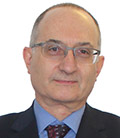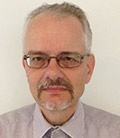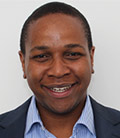New state-of-the-art in sulfur recovery?—Part 1
It is widely accepted that state-of-the-art sulfur recovery technologies utilize the modified Claus process as well as some extension technology on the tail gas.
IP: 10.1.46.65
This is a preview of our premium content. Thank you for your interest—please
log in or
subscribe to read the full article.
The Authors
Lewis, J. - Worley Comprimo, Brentford, England, UK
Jon Lewis leads UK Operations for Comprimo, part of the Worley group, after serving as Global Director for gas processing. Lewis’s responsibilities span consultancy, project delivery, client support and business development. He has extensive conceptual and detailed engineering experience and has held various roles associated with gas processing terminals, offshore platforms and refineries in his 29-yr career with the company, as well as managing the London Process Department from 2004–2011. Lewis graduated with an MS degree in advanced chemical engineering from the University of Manchester (UMIST) in the UK, is a Chartered Engineer and Fellow of the Institute of Chemical Engineers (FIChemE), and has published articles and presented at international conferences.
Jensen, F. E. - Topsoe Inc., Lyngby, Denmark
After graduation as chemical engineer, Frands E. Jensen has been working for Topsoe since 1979 in various marketing and sales positions and has been dealing with most of the technologies offered by Topsoe. Since 2003, Jensen has concentrated on the WSA, SNOX™ and TopClaus® technologies applied for sulfur removal from offgases as Senior Sales Manager.
Njuguna, H. - Worley Comprimo, Brentford, England, UK
Hesbon Njuguna is a Principal Process Engineer at Comprimo, part of the Worley group, and has extensive experience working in the design of sulfur recovery plants constituting the Claus process, SWS, amine regeneration and TGTUs throughout his 15-yr career with the company. Njuguna has been heavily involved in the early development of the TopClaus® technology. He graduated with an honors degree in chemical engineering from the University of Nottingham in the UK and earned an MS degree in forensic engineering and science from Cranfield University in the UK. Njuguna is a Chartered Engineer and Member of the Institute of Chemical Engineers (MIChemE).
Related Articles
From the Archive









Comments